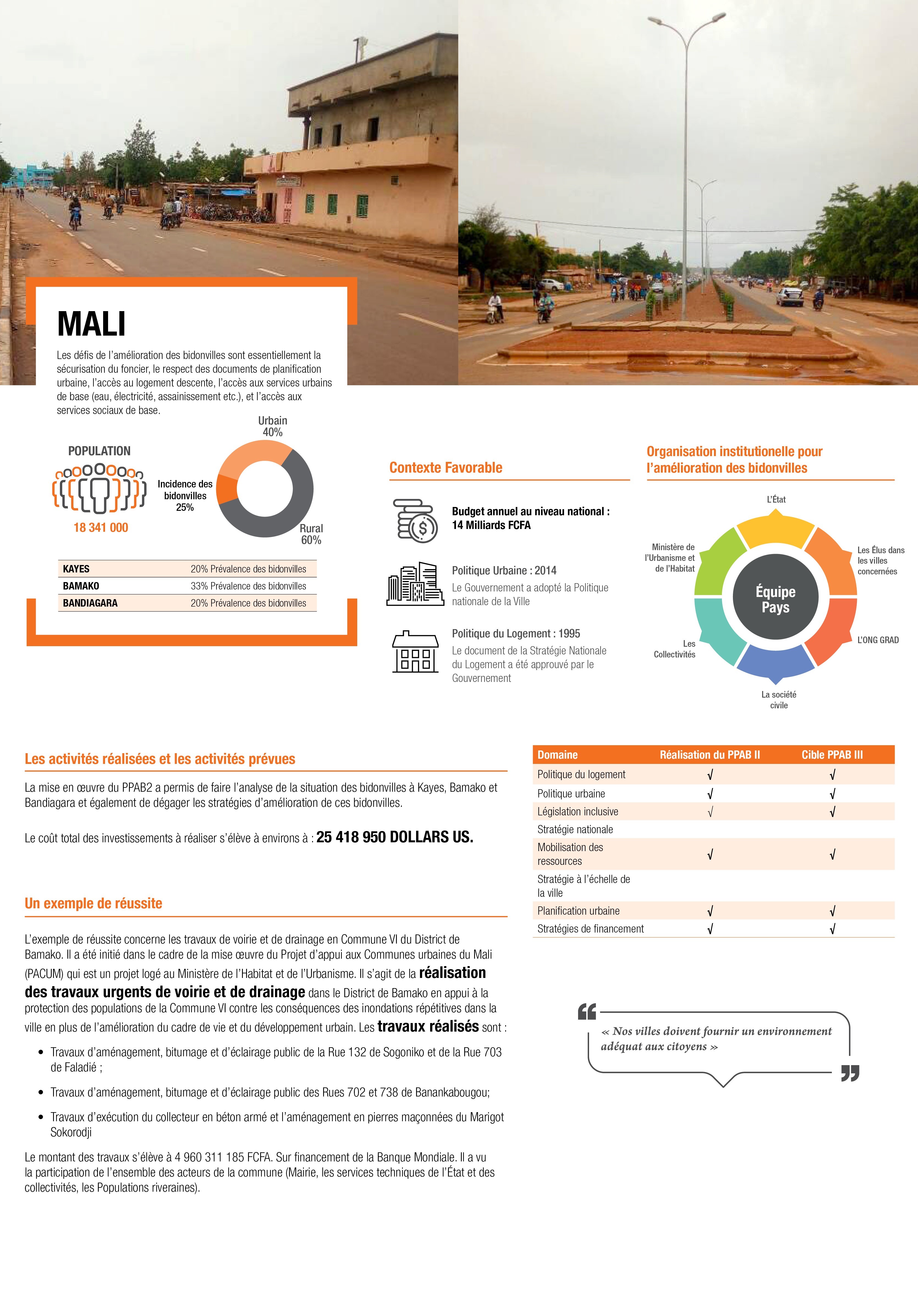Mali
Mali is a landlocked state in West Africa. The majority of the population live in the southern part of the country along the rivers Senegal and Niger, whose shores offer fertile land. But in the North, the Sahara Desert is expanding. Whole regions are mainly tribal and sparsely populated. Ethnic groups such as the Tuareg rule these regions, rather than the central government in the capital Bamako. Mali's gigantic desert area - as large as France - currently offers terrorists ideal retreats, so the state is increasingly developing into one of Africa's most dangerous countries.
In addition to the tense political situation in the North, water is scarce in large parts of the country. This leads to diseases due to lack of hygiene. Infant mortality is correspondingly high, especially in rural areas. The rural exodus is therefore great. Malian cities are growing rapidly - a challenge for the government.
Weak planning has led to vast areas within the cities lacking in basic service provision. These disorganized settlements are without any connections to wider road and trunk infrastructure networks. Access to improved sanitation in urban areas was 37.5 per cent of the urban population in 2012, which is below the Sub-Saharan African average.
The PSUP country team of the has identified several important priorities, including the development and execution of strategies to proactively integrate squatter settlements into the urban fabric using both new and existing regulations, planning methodologies, and sensitization campaigns.
PSUP has been instrumental in providing a platform to bring together stakeholders in order to analyse the strengths and weaknesses of the various aspects of the urban quality of life in Malian cities. Clear activity plans and well-defined communication channels and roles exist among the country team members. The focal government institution interfacing with PSUP is the Office Malien de l’Habitat, which has been responsible for replicating the profiling in other urban areas around the country. In addition, the Ministry of Lands and Housing has shown their commitment to ensuring the sustainability of the Programme in the country by contributing USD 200,000 to the budget. The government has reinforced the desire to find new solutions to slums with the participation of residents and other stakeholders. Moreover, important conceptual designs and strong partnerships have been developed around ecological and affordable housing construction techniques and typologies.


